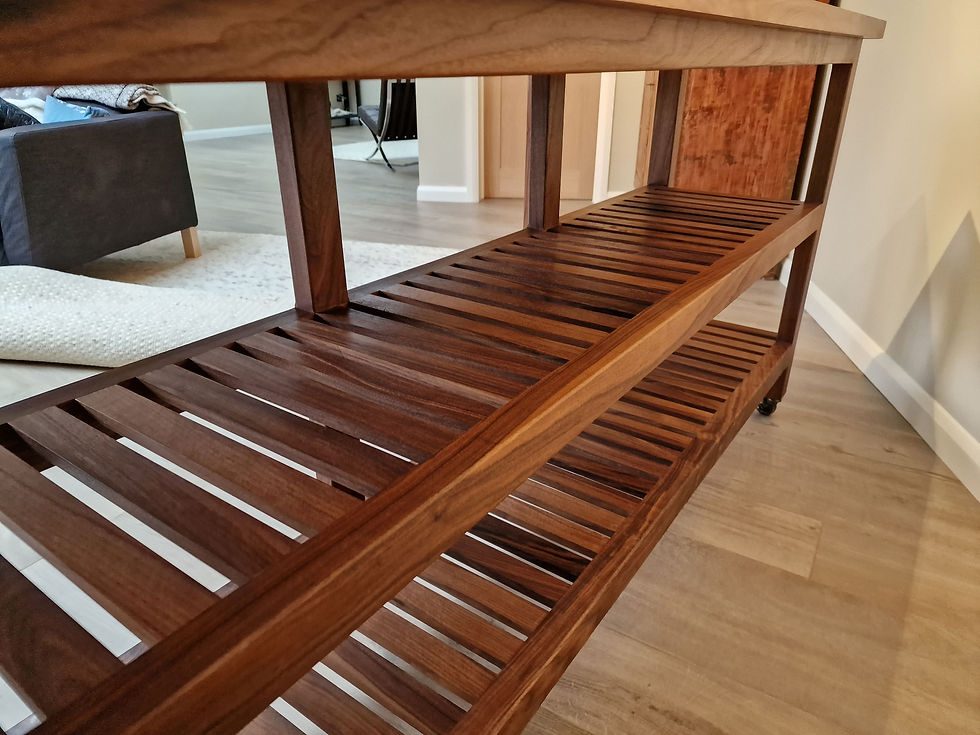FAST FURNITURE: Does Handmade Have a Value in an Automated Society?
- Richard Moss

- Jan 26, 2024
- 2 min read
In an era dominated by automation and mass production, the question arises: Does
handmade furniture hold value in today's society? As a fine furniture designer and maker, I’m
obviously on one side of the debate, what do you think?

One of the key advantages of handmade furniture lies in its ability to be customised to suit
individual preferences. Unlike mass-produced items, where uniformity is the norm,
handmade pieces offer an opportunity for clients to be actively involved in the design
process. From wood selection to design intricacies, the customer becomes an integral part
of creating a bespoke piece for their home.
In a world where perfection often equates to machine precision, handmade furniture
celebrates the beauty of imperfections. Each hand-carved detail and the slight variation in
wood grains add character, warmth, and a sense of authenticity to the piece. There's a human touch that machines cannot replicate, making each handmade creation one-of-a-kind.
Handmade furniture often aligns with sustainable practices. Makers tend to prioritise the
use of responsibly sourced materials and environmentally friendly techniques, contributing to
a more eco-conscious approach to furniture making. This connection with nature and
sustainability resonates with consumers seeking not only quality but also ethical
craftsmanship.

Fast furniture may dominate the market, but handmade pieces offer a timeless alternative.
These creations are built to last, passing down from generation to generation, with an
inherent durability that stands the test of time. Investing in handmade furniture becomes an
investment in quality and longevity, a departure from a more disposable mentality.
Handmade furniture often defies fleeting design trends. By choosing handmade, consumers
express a desire for enduring beauty and a connection with tradition. Crafting furniture by
hand is undoubtedly more time-consuming than automated mass production. However, this
labour-intensive process is a labour of love, and the resulting piece reflects the dedication,
skill, and passion of the maker.
Finally, handmade furniture also fosters a direct connection between the maker and the
consumer. Unlike purchasing from a large business, buyers of handmade pieces often have
the opportunity to communicate with the maker, gaining insights into the creative process
and the story behind their chosen piece. This connection adds considerable value that goes
beyond the physical object.
The Future of Handmade in an Automated Society
Despite the prevalence of automation, the demand for handmade furniture is on the rise.
Consumers are increasingly recognising the significance of supporting skilled makers and in
doing so helping to preserve traditional craftsmanship. I am optimistic about the future,
where the value of handmade creations continues to be cherished and celebrated.
The integration of technology can complement, rather than overshadow, handmade
craftsmanship. Innovations in design software, precision tools, and sustainable practices can
enhance the maker's capabilities, allowing for a harmonious blend of tradition,
innovation and ultimately progress.



